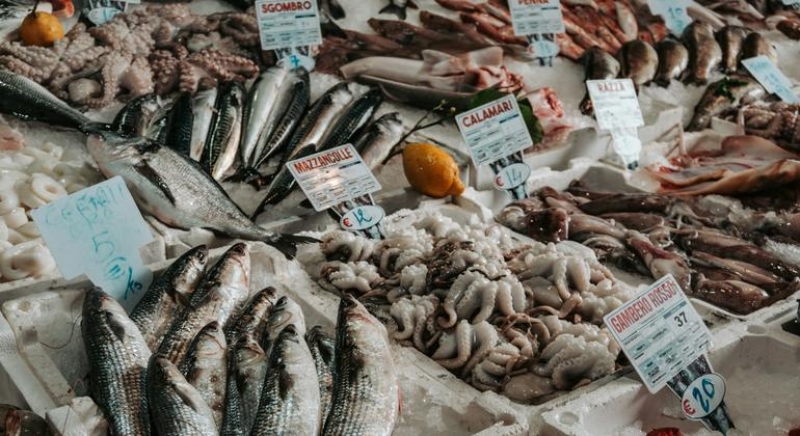- Dhaka’s air quality ‘moderate’ on Thursday |
- Rice traders refuse to unload cargo for high duty at Hili |
- Malnutrition Claims 100 Young Lives in Gaza, Says UNRWA |
- Hunger and Bombs Ravage Besieged Civilians in Sudan’s El Fasher |
- Loan defaulters won’t be allowed in nat’l polls: Salehuddin |
Nuclear Science Joins the Fight Against Seafood Fraud

Seafood is put on display at a market in Italy.
Across the globe, consumers and small-scale fishers alike are facing a growing challenge: seafood fraud.
From mislabeled fish to hidden additives, deceptive practices are threatening livelihoods, food safety, and trust in what ends up on our plates.
Now, a new international initiative backed by the United Nations is using cutting-edge nuclear science to protect people and ensure the seafood they rely on is safe, authentic, and traceable.
Seafood consumption per capita has doubled since the 1960s and is projected to double again by 2050, making seafood fraud a rising global concern.
The Food and Agriculture Organization (FAO) estimates that the fisheries and aquaculture sector employs 62 million people in primary fish production, with about 600 million livelihoods relying on these industries.
Seafood fraud ranges from substituting high-value species with cheaper alternatives to using unauthorised or undeclared additives. It can occur at any stage of the supply chain, especially as monitoring and traceability become more difficult due to increasingly complex global supply chains.
To ensure seafood fraud does not slip through the net, national and international food control systems need robust, fit-for-purpose analytical methods.
A joint project between the Food and Agriculture Organization (FAO) and the International Atomic Energy Agency (IAEA) is set to use nuclear technology to counter seafood fraud.
Through its Joint FAO/IAEA Centre of Nuclear Techniques in Food and Agriculture, the IAEA is launching a five-year coordinated research project to help countries strengthen food control systems to detect and prevent seafood fraud.
The IAEA will use nuclear and related techniques to build scientific capacity, ensure product authenticity, and enhance resilience and transparency in seafood supply chains.
“This IAEA project provides Member States with a valuable opportunity to collaborate in combating fraud and de-risking the seafood supply chain using robust nuclear science-based tools,” said Debashish Mazumder from the Australian Nuclear Science and Technology Organization, a key IAEA partner on sustainable development issues.
The IAEA’s Food Safety and Control Laboratory supports countries in applying nuclear and related analytical techniques to facilitate trade in safe and authentic seafood, offering powerful tools for fraud detection.
One of the most effective methods to counter seafood fraud is stable isotope ratio analysis of light elements such as oxygen, which allows scientists to identify the geographical origin of fish and verify whether it was wild-caught by reflecting environmental and ecological conditions in the fish’s biological tissues.
Used to authenticate seafood, nuclear technology serves as a powerful tool to combat seafood fraud, enhance consumer protection, increase trust in food control systems, and support fisherfolk in managing aquatic resources sustainably.

